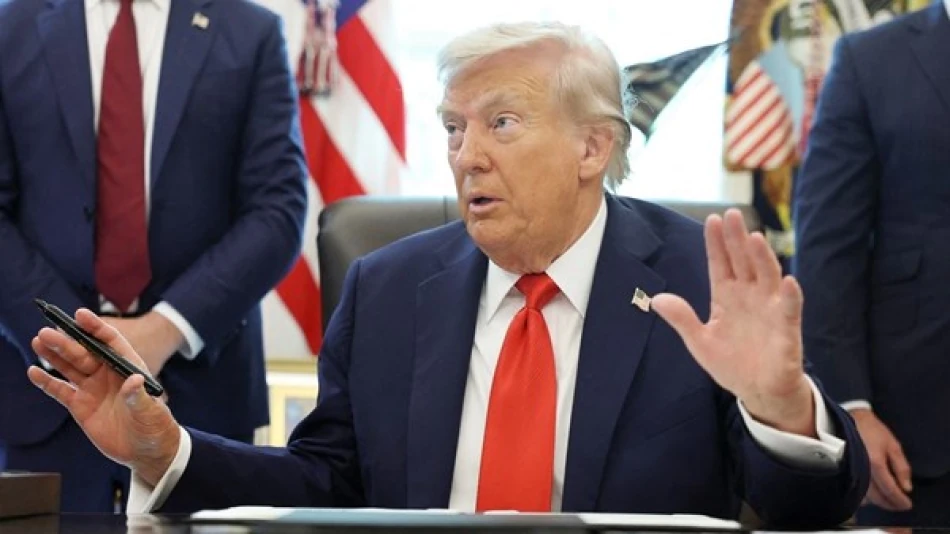
Trump Provides Update on His Health amid Speculation
Trump Dismisses Health Concerns as "False" Amid Renewed Medical Scrutiny
President Donald Trump on Tuesday firmly rejected social media reports questioning his health status, telling reporters he remained energetic during the Labor Day weekend while conducting media interviews and visiting his Virginia golf club. The denial comes amid heightened attention to the 78-year-old president's physical condition, particularly following visible swelling in his legs and hand injuries that prompted official White House medical explanations.
Presidential Health Under the Microscope
Speaking from the Oval Office, Trump characterized the circulating health reports as "false" when pressed by journalists about his awareness of the social media speculation. "I was full of energy during the weekend," Trump stated, emphasizing his active schedule during the holiday period.
The president's pushback reflects the intense scrutiny that presidential health receives in the modern media landscape, where every public appearance is analyzed for signs of physical decline or vitality.
Medical Explanations for Visible Symptoms
Official White House Response
The health discussions stem from incidents in mid-July when White House Press Secretary Caroline Levitt acknowledged Trump was experiencing swelling in his lower legs and bruising on his right hand. Photographs showing ankle swelling and evidence of makeup covering portions of his hand had sparked public speculation about underlying health issues.
Doctor's Assessment
Trump's physician, Dr. Sean Barbapiela, provided a medical explanation in a White House-released letter, attributing the leg problems to "chronic venous insufficiency" — a benign and common condition, particularly among individuals over 70 years old. This condition occurs when leg veins struggle to send blood back to the heart efficiently, often resulting in swelling and discomfort.
Age and Presidential Fitness Debates
At 78, Trump represents the oldest sitting president in U.S. history, making his health status a legitimate concern for voters and political observers. The condition diagnosed by his physician affects millions of Americans, particularly in Trump's age demographic, where circulation issues become increasingly common.
The transparency around these minor health issues contrasts with historical precedents where presidents often concealed significant medical problems from the public. Modern expectations demand greater disclosure, though the line between legitimate health concerns and normal aging processes remains politically charged.
Political Implications of Health Transparency
Trump's direct denial strategy reflects his typical approach to controversy — immediate, forceful rejection rather than detailed medical explanations. This response pattern has characterized his handling of various challenges throughout his political career.
The president's emphasis on his active weekend schedule serves as counter-evidence to speculation about declining stamina or capacity. By highlighting media interviews and golf activities, Trump attempts to demonstrate continued vigor and engagement with his duties.
As the 2024 election cycle intensifies, presidential health assessments will likely remain a focal point for both Trump and his political opponents, making medical transparency an ongoing campaign consideration rather than a one-time disclosure.
Most Viewed News

 Layla Al Mansoori
Layla Al Mansoori






